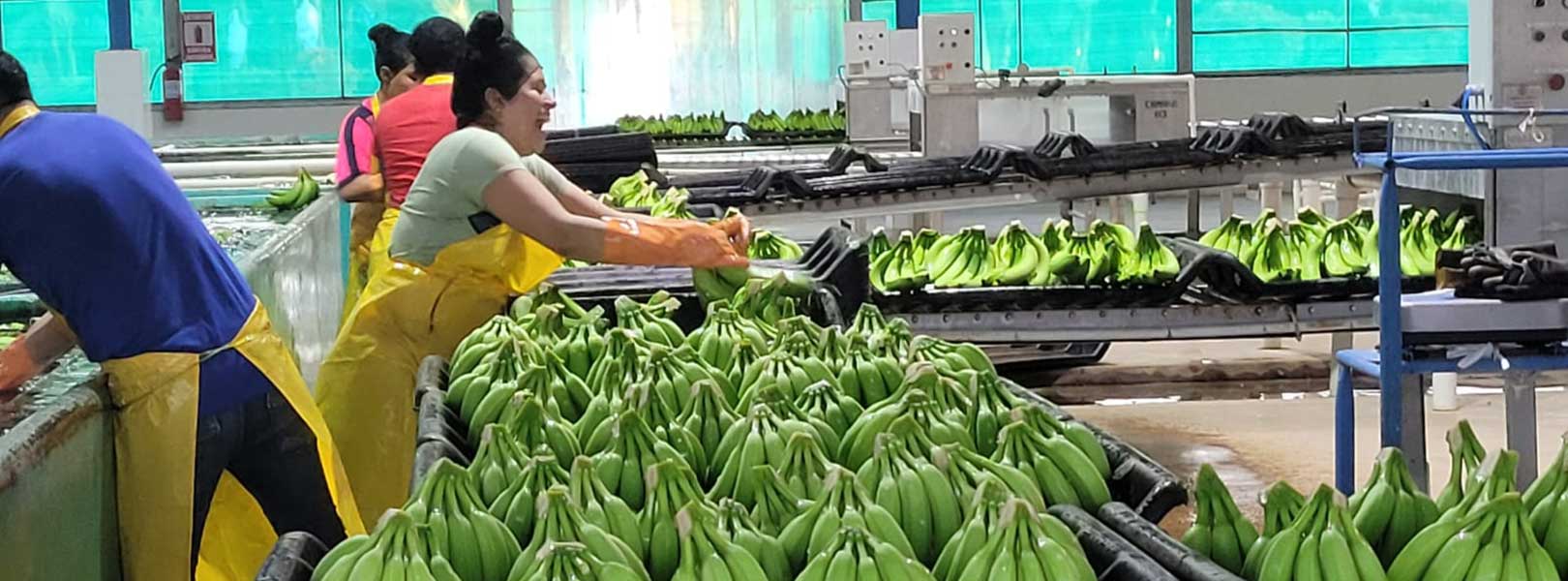Improving Respect for Workers’ Rights in Agricultural Supply Chains in Honduras and Guatemala, and the Maquila Sector in El Salvador
Print

Photo by Luis Fuentes
Part of the Root Causes of Migration Strategy for northern Central America, this project seeks to improve workers’ rights in Honduras, Guatemala, and El Salvador by supporting workers’ organizations in the banana, melon, palm oil, and pineapple sectors in Honduras; the banana and palm oil sectors in Guatemala; and in the garments (maquila) sector in El Salvador.
The Problem
In Honduras, Guatemala, and El Salvador, workers in the agricultural and apparel sectors endure restrictions on freedom of association, wages that are insufficient to meet basic needs, long working hours (at times in excess of legal limits or even forced overtime), persecution of labor organizers and advocates, gender-based violence and harassment, exposure to health and safety hazards, and inadequate or non-existent employment benefits. This particularly affects workers from underserved communities, including rural, indigenous, and Afro-descendant communities, women, and lesbian, gay, bisexual, transgender, queer, intersex and other sexual and gender-diverse (LGBTQI+) workers .
All three countries have been parties to the Central America Free Trade Agreement (CAFTA-DR FTA) with the U.S. since 2004. In 2020, the U.S. imported $11.3 billion in goods from these three countries, especially agricultural and apparel products.
Our Strategy
To improve workers’ rights in Honduras, Guatemala, and El Salvador, the project will:
- Support grassroots organizing and union building, so they can better train, represent, and advocate for agricultural and maquila workers;
- Provide workers’ organizations with tools to engage with governments and bargain with employers to address issues affecting workers’ rights;
- Foster information-sharing and networks among workers’ organizations; and
- Conduct research on workers’ rights in selected supply chains.
- Grantee:
- Solidarity Center
- Contact Information:
- (202) 693-4900 / Office of Trade and Labor Affairs (OTLA)
- Tags:
- Trade
- Afro-descendant
- Bananas
- Capacity-Building
- Central America
- Community
- El Salvador
- Guatemala
- Honduras
- Indigenous Communities
- LGBTQI+
- M-POWER
- Melons
- Northern Central America
- Palm Oil
- Pineapple
- rural
- Supply Chains
- Women
- Workers Organizations
